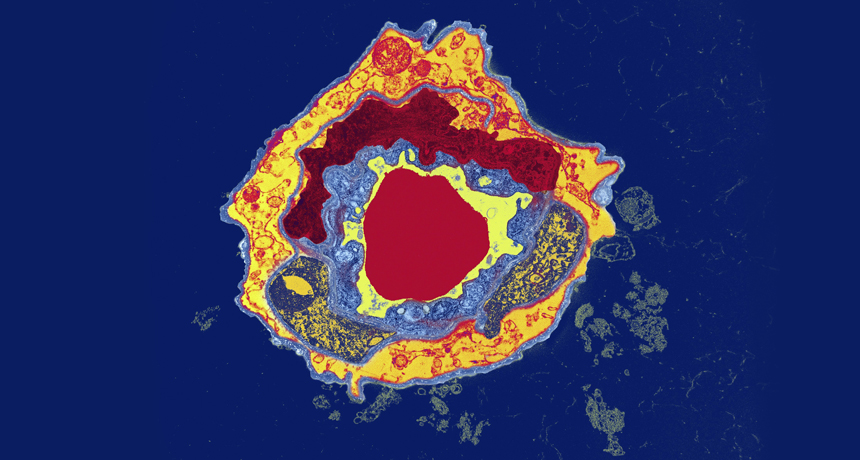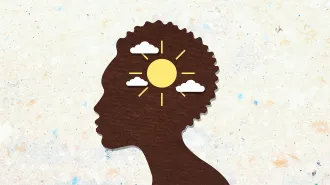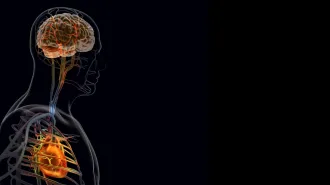Protein helps old blood age the brains of young mice
Scientists hone in on activity in the blood-brain barrier as the culprit

NO BARRIER A protein in some cells that form the blood-brain barrier (light blue, as seen in this image of a mouse brain capillary) may have a hand in brain aging, a new study suggests.
Wellcome Images/Science Source







